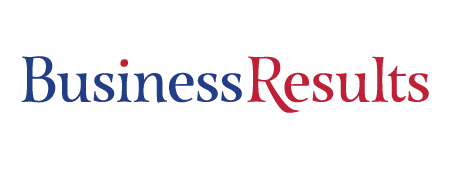04 Feb Build and Manage Effective Teams in a High Growth Organization
Year Up is a non-profit organization that prepares urban young adults for higher education and successful careers. With the rapid growth of the organization, the leadership team implemented PI to assist with Team Building, Strong Job Fit, Employee Development, and Conflict Resolution.
Year Up, a non-profit organization, was founded in October 2000 by its current CEO, Gerald Chertavian, as a one-year intensive education and apprenticeship program for urban young adults aged 18-24, to prepare them for higher education and successful careers. There are currently 6 office locations across the U.S., as well as a national office in Boston, MA.
Sue Meehan, National Director of Finance and Operations of Year Up, joined the organization in April of 2005, bringing the staff count up to 38 people. Today, Year Up has grown to 130 employees. While experiencing this kind of employee growth is exciting, it comes with some challenges. A significant portion of the workforce at Year Up are young adults, so it is important for the leadership team to mentor, coach and provides development opportunities for these workers. Also, due to their youth, these employees tend to have limited work experience which increases the importance of finding a way to establish strong job fit.
Gerald was committed to running the organization as efficiently and effectively as possible. During a conversation with Sue, she shared that at her previous employer, she was introduced to the Predictive Index® (PI®), a behavioral assessment tool used for talent management. According to Sue, “PI® is an essential tool for hiring, team building, professional development, leadership development, coaching, and conflict resolution.”
With Gerald’s interest peaked, Sue asked Dan Handalian, Senior Consultant at PI® to conduct a session with the management team to assess Year Up’s people and learn how the Predictive Index could help them increase productivity. The meeting generated a lot of excitement within Year Up’s senior team, and PI® was implemented in the fall of 2005.
Team Building:
PI® is used for team building across the organization. According to Sue, “PI® allows us to identify the individual behavioral styles of the team members so they can work more effectively together.” PI® creates a common language allowing teams to develop strong communication among each other, resulting in more effective relationships. Sue continues, “PI® plays a role in annual bench review meetings where the Executive Directors analyze how their teams are structured and how PI plays an important role in team development and dynamics.”.
Strong Job Fit:
With their unprecedented growth, Year Up is frequently hiring for key positions utilizing PI® in conjunction with The PI® Job Assessment, the companion tool to the PI® that profiles the behavioral requirements of the job, to provide the insight to make the right hiring decision. Sue explains, “Hiring people too quickly can lead to putting the wrong people in the wrong jobs. PI has enabled Year Up to create strong job fit for our employees right from the start, which ultimately impacts motivation and performance.”
When Year Up is looking to fill a key position, not only do they look at the PIs in relation to the role, but also at the communication and leadership style of the manager. In one example, PI® was used when transitioning to a new Executive Director at one office location. By reviewing the PIs of both the old and new Directors, they were able to get the new Director ready for the next steps in his career, anticipate pressure points, and effectively prepare the team for the difference in leadership.
Employee Development:
Lisette Nieves, Executive Director of the New York City office, shares that PI® gives her younger organizational staff a sense of self-awareness, and reinforces their individual interests. “It gives them a better understanding of their own behavior and communication styles. We then reinforce the process at an annual off-site session where the PI’s of all 26 employees are reviewed to gain insight into each person’s behaviors.”
Sue adds, “Our employees can use the insight from their PI® to think in a more structured way about their career path. This process can present new opportunities that may not have been considered before.” It can also help in coaching for better job fit. Sue gives an example of an employee who held a very structured job, but lacked attention to detail to be effective, and was struggling in her job. Her PI® suggested that she would be more effective in a client service role, with more social interaction and less attention to detail. Her manager supported the change and her new role worked very well. Sue continues, “By using PI® for coaching and employee development, we have reduced turnover, improved communication and created more harmonious teams.”
Conflict Resolution:
At one point, members of Lisette’s leadership team weren’t communicating well with each other. Lisette met with them to share their PIs and discuss their differences. The insight from the Predictive Index allowed them to share their workplace behavior in a nonconfrontational way, building an awareness of each other’s communication styles and providing strategies to improve their interactions. Lisette explains, “A critical value of PI is that it promotes and supports self-awareness. It allows people to talk about conflict and provides another lexicon to manage and communicate effectively with your staff.”
According to Sue, “PI® is used to resolve conflicts between employees and make a difficult situation less personal. PI provides insight that creates an awareness and understanding of how different individuals approach work.”
Extending Success into the Future:
As the organization continues to grow, Year Up plans to open another office in 2010 and the Predictive Index will be part of its success. Sue shares, “PI® is part of our business strategy and corporate culture. As a growing organization, we need to ensure that each new manager is aligned with the senior management team. Working in an entrepreneurial environment where growth and change come very quickly, PI® saves us time, keeps our teams aligned and leverages our most important resource — our people.”


